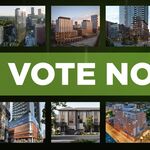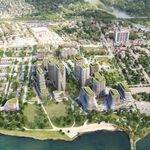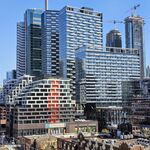argos
Active Member
John Spears
City Hall Bureau
Toronto residential property taxes will rise by 4 per cent in 2009 - an increase of $89 on a home assessed at $387,000, according to the budget unveiled this morning.
Under the$8.7 billion budget proposal, the total take from property taxes will rise by 2.5 per cent. But in keeping with the city's long-term policy of easing business property tax rates, homeowners pick up a greater share of the increase.
Mayor David Miller said the increase amounts to 25 cents a day.
Councillor Shelley Carroll, the city's budget chief, said there are "no major service reductions" contemplated in the budget plan.
Some user fees on recreation programs will also increase. But the land transfer tax and the vehicle tax will not increase, Miller said.
Miller said higher costs for transit, policing, snow clearance and welfare are the main factors driving the city's costs up. The city managed to find $100 million in cost savings to offset the higher spending, he said.
Miller said that programs to cancel or defer tax increases for low-income earners and seniors will be expanded. That means another 22,000 families will qualify for assistance, Miller said.
But he said the city can still manage to pay its bills.
"We are introducing our second consecutive budget balanced at its inception," Miller said.
The budget committee will hold public hearings on the budget February 18. The committee also accepts written briefs.
The budget will go to council for final approval at its meeting on March 31 and April 1.
Asked why the city is raising taxes during a recession, Miller said the city isn't legally perrmitted to run an operating deficit. That's in contrast to the federal government, which can run a deficit to stimulate the economy during downturns.
The federal gvernment is running a deficit of roughly $1,000 per Canadian, Miller said, but sooner or later that money must be paid for through the tax system. The city, meanwhwile, is boosting taxes about $89 per household.
"Municipal governments can't run a deficit," he said. "People want their services. We have to keep their services going. We have to kkeep building a city. We have to invest in people and our environment. And to do that you need to pay a little bit more."
Source: http://www.thestar.com/News/GTA/article/585103




